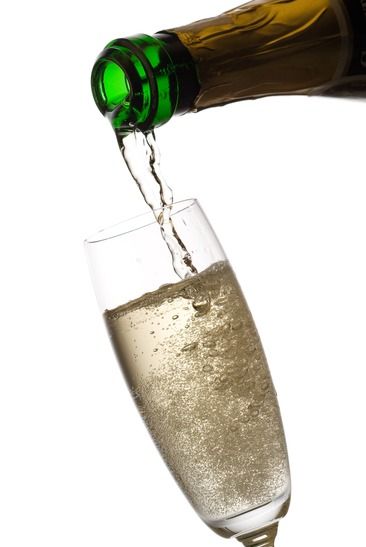

 Want to earn continuing education credit for this article? Learn more.
Want to earn continuing education credit for this article? Learn more.
Business is a little slow and you’ve used up just about all your ideas for enticing clients in for a massage. You read somewhere that a local spa is offering newlywed couples a special weekend packs, which includes a glass of champagne before their couples massage. You think, “What a great idea!” Not the whole weekend event, but the idea of serving a nice, bubbly glass of champagne as part of a celebratory package suitable to your practice.
Before you go too far with this idea though, let’s hit rewind.
Ethical Questions to Ask Yourself First
- Is it legal? Does your state, county or town have restrictions on who can serve alcohol? Do you need a separate license for that?
- Some states have strict laws about who can serve alcohol and, if they can, who they can serve alcohol to and when.
- Is it within the professional code of ethics as put forth by any of the organizations, or state laws you must adhere to?
- Read the code of ethics applicable to your business. While they might not be legally binding, not adhering to them could cost you your membership in a professional organization as well as a loss or suspension of your license.
- What is your responsibility if you serve someone even one glass of wine and the person causes an automobile accident or commits a crime on the way home? In most – if not all – states, if you serve someone alcohol and they get in an accident, the person who served the person the last drink is also liable for any harm done. Ask yourself, “Is it worth taking the chance?”
Physiological Reasons
The effects of one glass of champagne may seem slight and the effects of massage alone, to some, appear to be inconsequential. However, each of them do have substantive effects on the body and mind and, together, those effects are compounded.
What Alcohol Does to the Body
- Alcohol is dehydrating. Alcohol is a diuretic, causing the body to produce an increased amount of urine. This happens because alcohol blocks the release of anti-diuretic hormone (ADH), which works to maintain tissue water content. By inhibiting this hormone the kidneys do not reabsorb the water and instead excrete it as urine. Any substance with diuretic effects can result in dehydration.
- Alcohol impairs the ability to give appropriate feedback. It tends to desensitize nerve endings and reduce the sensation of touch. If heat and deep pressure is used, a person would be unable to determine if the pressure might be injurious.
- Alcohol impairs judgment. It has many chemical affects on the brain, including increasing levels of norepinephrine, the neurotransmitter responsible for arousal and heightened excitement, and an increase in impulsivity as well as a reduction in impulse control.
- Alcohol has the greatest effects on the prefrontal cortex of the brain. This is the area responsible for decision making and rational thought, both of which are depressed after drinking alcohol. The prefrontal cortex also has control over aggressive behavior.
- Alcohol decreases energy consumption in the cerebellum. The cerebellum is responsible for controlling the body’s motor activity and overall physical coordination.
What Massage Could Potentially Do to the Body
- Increase the effect of alcohol
- Depending on the type of massage given, it can act as a stimulant or it can relax (have a sedative effect on) the mind and body
- While unlikely, depending on the type and intensity of the massage, massage can result in adverse effects
Combining massage therapy and alcohol can increase potential for a negative outcome. It also desensitizes a person to pain and even clouds judgment. The client may perceive the intent of the massage therapist differently than if just getting a massage. Even one drink – be it one glass of wine – can impede a person. The effect depends on many factors, including body weight, food eaten, prior alcoholic drinks (even if the night before) and general physical condition.
Anyone who has gotten a good, relaxing massage knows that for awhile afterward, the receiver may be a little wobbly, perhaps even lightheaded. And that is without any added intoxicants. A person driving home after getting a massage as well as consuming a glass of wine or champagne can very well be a danger to him or herself, or others. It could also cost you your license to practice.
Earn continuing education credit for this article contained in our Common Pathologies & Complaints series. Click here to enroll











